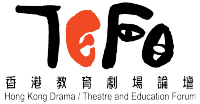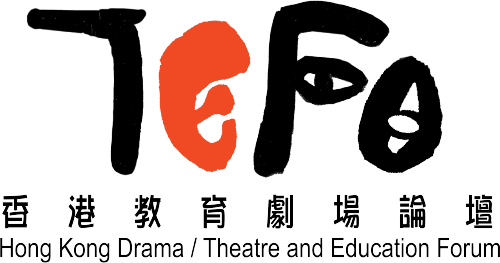Tag: Drama Curriculum
The Integration of Drama Education in the Subject of Modern Greek Language in Greek Primary Education|DaTEAsia Vol. 8
The use of dramatic conventions for educational purposes has a long history. However, in the Greek educational system it is only during the last decade that a clear-cut effort has been actually made to incorporate dramatic methods into the teaching of various subjects and in particular into the subject of language. The present study examines ways and approaches of incorporating dramatic methods into the subject of language in the elementary education in Greece.
Passion, Partnership, Power and Persistence: The Rise and Fall of a Transnational Drama Programme | DaTEAsia Vol. 6
In this article, the authors share their experience in introducing the first award bearing programme in applied theatre and drama education to Hong Kong. Examining the development and challenges within a 10-year transnational partnership between two tertiary institutions, they discuss intercultural issues arising from the collaboration, analyse the impact of the programme on practitioners in Hong Kong and Australia, and reflect on issues related to sustainability. Using the programme as a case study, the authors draw on their experience to bring about discussion on drama education and applied theatre practice in a larger context, suggesting that interculturality, impact and sustainability are three important topics to explore in considering the future for the field in Hong Kong and beyond.
Enhancing School-aged Children’s Social Competence through Educational Drama | DaTEAsia Vol. 6
In this paper, the role of educational drama was examined as a means of promoting primary school students’ social competence. A research study was conducted in 90 public primary school classrooms in Greece. The research data came from 1826 children aged 9 through 11 years (904 boys, 922 girls) in an experimental process of pre-testing and post-testing, using the sociometric nomination procedure of Coie and Dodge (1983). Statistical analysis of research data revealed that: (1) Drama activities have positive effects on students’ social competence and (2) the positive effect that educational drama has on students’ social competence is not related to the age of the children since the research expectations were finally confirmed in all experimental classrooms. Thus, more attention should be paid to a drama-based curriculum in primary school if the development of students’ social competence is to be facilitated.
How to Plan a Drama Lesson with Hot News as the Pretext – Taking “The Sea Project” as an Example (Chinese)|DaTEAsia Vol. 4
The earthquake and the subsequent tsunami taking place in Japan on 11 March 2011 concerned Taiwanese society a lot. It prompted me to devise a drama lesson with this hot news as its pretext, so as to help the participants consider what one can do when an unexpected and inescapable calamity happens. Seeing that lesson planning, in addition to teaching tactics, is also a great challenge for drama teachers and worthy of study, this paper shares the thorough planning process of the above-mentioned drama lesson, particularly regarding the issues such as ethical concerns, artistic selection, and course structure.
Looking Yonder: a Model of Arts Engagement with Teacher Artists and Professional Artists in Queensland Schools | DaTEAsia Vol. 4
Since 2007 Kite Arts Education Program (KITE), based at Queensland Performing Arts Centre (QPAC), has been engaged in delivering a series of theatre-based experiences for children in low socio-economic primary schools in Queensland. KITE @ QPAC is an early childhood arts initiative of The Queensland Department of Education that is supported by and located at the Queensland Performing Arts Centre. KITE delivers relevant contemporary arts education experiences for Prep to Year 3 students and their teachers across Queensland. The theatre-based experiences form part of a three year artist-in-residency project titled Yonder that includes performances developed by the children with the support and leadership of Teacher Artists from KITE for their community and parents/carers in a peak community cultural institution. This paper provides an overview of the Yonder model and unpacks some challenges in activating the model for schools and cultural organisations.
Children Create Their Own Drama with the Help of the Teacher: An Action Research on the Curriculum Implementation of Theme-Integrated Drama in Preschools in the Mainland China|DaTEAsia Vol. 3
The action research conducted here on the curriculum implementation of Theme-integrated Drama in preschools in the Mainland China aims to find out how, with the guidance of the teacher, children create their own drama works by integrating their experience in drama expression, drama creation and drama performance. To implement the curriculum, different themed drama activities are often designed for different age groups; for example, “Trees and Birds” for the class of five to six year olds. Such activities include three phases. In the phase of drama expression, children in particular roles have an opportunity to express their views of the surrounding world. Then the children are encouraged to create plots and scenes around a conflict where their role is dramatized, and then to discover and solve problems. This is the phase of drama creation. In the last phase, previously acquired experience in drama expression and drama creation are integrated into the drama performance. Through that experience children gain a sense of accomplishment when presenting their own drama works in front of the audience.
School-based Drama Program to Enhance Social and Emotional Wellbeing at Elementary School (English)|DaTEAsia Vol. 3
The drama program was designed by the experienced drama expert and educator Annukka Häkämies and Katja Joronen with the teachers in Southern Finland. The program premised upon the drama theories of e.g. Owens and Barber (1998) and social cognitive theory of Bandura (1986). Program focused on improving social competence and social and emotional wellbeing in the classroom which may also reduce bullying. Participants were elementary school children in grades 4–5 (mean age of 10.4 years).
The Observation of the Practice of Drama Education in Taiwanese Elementary Schools in 21st Century|DaTEAsia Vol. 2
Grade 1-9 Curriculum has been implemented in Taiwan since 2001 which drama has gradually become a more important teaching medium in Arts and Humanities domain. We can observe the situation of drama education practice in modern Taiwanese elementary schools from the scopes of the modern drama and traditional drama. In the part of the modern drama, the forms are mainly creative drama and educational drama, including performance appreciation and, at the same time, getting involved with plot to produce interactive dialogue. The teaching of modern drama is aimed to stir the students' creativities and esthetic abilities and to guide them to learn and solve the transdisciplinary questions. In the part of the traditional drama, different from creative drama and educational drama, the teachings emphasizes on the performing skills, and the intention of conserving traditional art heritage is apparent, for example Palmardrama team from Taipei Municipal Pingdeng Elementary School. The aims of the paper are not only analyzing the present situations of the drama education, but also observing the restrictions and limitation of drama education within Taiwan's elementary education system and to put forth the self-reflections and suggestions.
Drama Appreciation in Children Aesthetic Education: A Case Study on Creative Drama|DaTEAsia Vol. 2
A case study adopted to investigate a teaching artist’s implementation of integrating creative drama as teaching strategies into the aesthetic education to promote drama appreciation in kindergarten. The purposes of the research included the exploration in the application of drama strategies in education curriculum, the feasibility on the usage of creative drama in inducing drama appreciation, and the resulting learning outcomes on students.
How Effective is a Drama-enhanced Curriculum Doing to Increase the Creativity of Preschool Children and Their Teachers?|DaTEAsia Vol. 2
In Hong Kong’s recent curriculum reform, creativity has been identified as a generic skill to be nurtured in our students of all levels in the key learning areas, including arts education. The present study evaluated the effects of a drama in education project on both students and teachers. Kindergarten and primary teachers took part in a 24-hour teacher training program on drama in education. Teachers also received support in lesson planning on drama-enhanced learning to the classes they were teaching. Students were randomly drawn from these classes to form the experimental group (83 kindergarten students) whereas 20 students from the same schools but were not taught by these teachers took part in the study as the control group. A total of 58 kindergarten teachers and primary school teachers completed both the pre-test and post-test. Significant differences were found in the teacher-perceived dramatics characteristics in the experimental group of students. Students who displayed more dramatics and creativity characteristics outperformed those with fewer characteristics in their verbal expression in story-telling. Significant positive effects were also found in the creative fostering teaching technique of teachers involved in the training. They encouraged their students to become independent and cooperative learners, accepted students’ ideas and provided them with try out opportunities. They also showed long term commitment to drama in education. Limitations and future directions are discussed.
Nurturing an Environment for Drama Education in a Learning Organisation: A Case Study of “Fanling Assembly of God Church Primary School”|DaTEAsia Vol. 2
This case study examines how a Hong Kong primary school uses the management principles of “learning organisations” to nurture an environment for the long-term development of drama education in the school. Through a microscopic analysis of the school’s experiences, this paper documents and discusses how the school made use of external funding to bring in human and curriculum resources, how a platform for collaborative teacher development was created to nurture their own team of drama teachers, and how a holistic drama curriculum was conceived and practised in the school. This paper focuses on how the school adopts the principles of humanistic management to facilitate teacher empowerment and create a vision shared by teachers, parents and students.
A Paradigm Shift in the Implementation of Drama Education in Hong Kong Schools|DaTEAsia Vol. 1
A survey about the implementation and effectiveness of drama education in Hong Kong schools reveals that more than 90% of the principals involved agree that drama can exert positive impact on the all-round development of students. Drama does not only enhance students’ generic skills, collaboration skills, self-confidence, learning motivation, language ability, moral awareness and affection; but also facilitates their learning in Chinese Language, English Language, Personal, Social, and Humanity Education and Arts subjects. However, there are only a very small number of schools adopting drama as a formal curriculum and the resource allocated to drama education is very limited. For example, only 1 – 2 periods are allotted to drama education in the schools offering a formal drama curriculum. The inconsistency between the principals’ belief and practice of drama education in schools implies that principals are encountering huge tensions in adopting drama education in their schools. This paper aims to discuss the need for a paradigm shift in implementing drama education from the perspectives of curriculum change and management of change.
Inquiries into the Contemporary Drama Education in Taiwan|DaTEAsia Vol. 1
Urged by the reflection on the current educational reform and its implementation in Taiwan, as well as based on the researcher’s academic interest and teaching experiences, this thesis attempts to clarify the changing meaning of drama education in Taiwan, and derived from the researcher’s teaching own observation and reflection, propose the thinking directions and improving strategies for the praxis of drama education based on the researcher’s own observation and reflection.
Diversity, Discretion and Distinction in Drama Learning (English)|DaTEAsia Vol. 1
In this Keynote address from the World Conference 2009 on Drama and Education in Chinese Communities (19-21 December, 2009) Hong Kong, Madonna Stinson unpacks the title of the conference “Embarking on a 3D Journey - Search Diversely, Think Discreetly, Use Distinctively” in terms of questions relating to curriculum in general, and with particular reference to the current context in Singapore. She encourages the drama education community to be open collaboration as we engage in the curriculum “conversation” with awareness that we have no definitive answers to the big questions that shape our journey.




